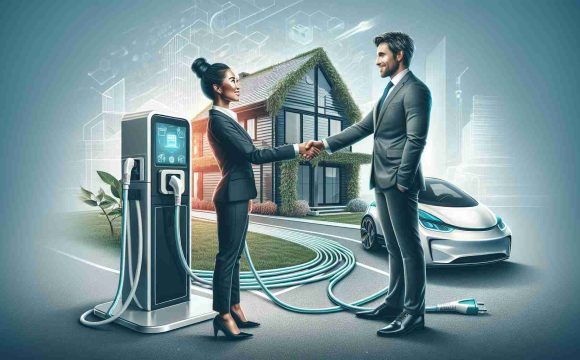Clean Energy Commitments Dwindle
A significant development in the clean energy landscape is unfolding, as a major Norwegian aluminum manufacturer, Norsk Hydro, announces a dramatic shift in its environmental strategy. This pivot signifies a troubling trend for the future of green energy.
Norsk Hydro has decided to discontinue its investments in battery materials and green hydrogen, marking a retreat from its once ambitious environmental goals. This decision reflects broader economic challenges in Europe, particularly as the hydrogen sector grapples with inadequate government backing and increased competition from low-cost imports, primarily from China.
The implications of Norsk Hydro’s decision are concerning for the momentum of renewable energy initiatives during a crucial period. With hydrogen technology pivotal to reducing greenhouse gas emissions, the reduced investment in such areas threatens to hinder progress towards cleaner energy sources.
In light of falling production in Europe, coupled with dwindling electric vehicle incentives in Germany, the company’s stance illustrates the difficulties faced by many in the clean technology sector. CEO Eivind Kallevik anticipates that the Chinese electric vehicle market will sustain a significant footprint in Europe, capturing around 30-35% of the market.
Despite this setback, Norsk Hydro will enhance its aluminum recycling efforts to contribute to sustainability, aiming for substantial cost savings by 2030. Meanwhile, other companies and governments are persistently advocating for renewable energy, urging consumers to support environmentally responsible businesses and policies for a healthier planet.
The Future of Clean Energy: Norsk Hydro’s Shift Signals Troubling Trends
Clean Energy Commitments Dwindle
The clean energy sector is currently facing significant challenges, highlighted by the recent announcement from Norsk Hydro, a leading Norwegian aluminum manufacturer. In a surprising move, the company has opted to discontinue its investments in battery materials and green hydrogen, a decision that underscores a broader retreat from ambitious environmental goals across the industry.
Implications of Norsk Hydro’s Decision
Norsk Hydro’s withdrawal from key segments such as battery materials and green hydrogen comes amidst several economic hurdles in Europe. The hydrogen sector, which is crucial for reducing greenhouse gas emissions, struggles with insufficient government support and stiff competition from low-cost imports, predominantly from China. This contraction in investment could slow the momentum of renewable energy initiatives at a time when such advancements are critical for combating climate change.
The Broader Economic Context
With European production in decline and electric vehicle incentives waning in major markets like Germany, Norsk Hydro’s decision is indicative of the larger difficulties that many entities within clean technology face. CEO Eivind Kallevik has highlighted the impact of these market dynamics, predicting that Chinese electric vehicles will capture between 30-35% of the European market—an alarming statistic for local manufacturers striving to remain competitive.
Sustainable Practices Moving Forward
Despite these setbacks in specific clean energy investments, Norsk Hydro is committed to enhancing its aluminum recycling efforts. The company aims to achieve substantial cost savings by 2030 through this strategy, aligning itself with sustainability goals while navigating the current economic landscape.
Industry Reactions and Future Predictions
The reaction within the industry has been mixed, with some stakeholders advocating for continued investments in renewable energy technologies despite Norsk Hydro’s retreat. Their voices underline the necessity for persistent governmental support and innovative solutions to foster growth within the clean technology sector.
Pros and Cons of the Current Clean Energy Movement
Pros:
– Ongoing initiatives from companies and governments advocating for renewable energy.
– Increased focus on aluminum recycling, which may mitigate some environmental concerns associated with production.
Cons:
– Diminishing investments in battery materials and green hydrogen may slow technological advancements.
– Heightened competition from lower-cost imports can undermine local markets and reduce innovation.
Conclusion: The Path Forward
The clean energy landscape is at a crossroads, and the decisions made by influential companies like Norsk Hydro will significantly shape its trajectory. As the industry navigates economic pressures, the importance of supportive policies and consumer advocacy cannot be overstated. The forthcoming years will be crucial in determining whether the current trends will pivot towards renewable solutions or further retreat into traditional energy sources.
For more insights on clean energy developments and sustainable practices, visit Clean Energy Resource Center.







